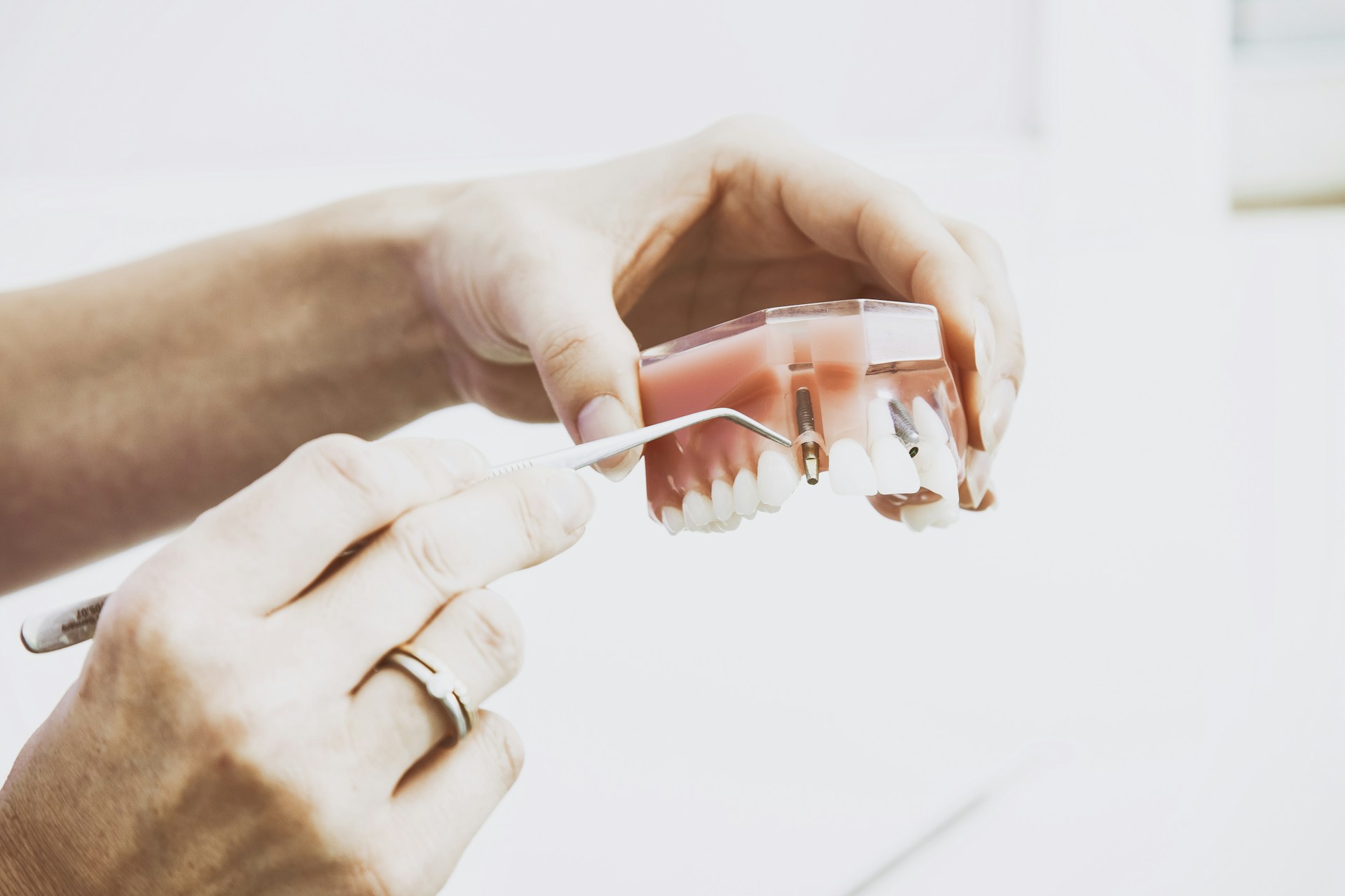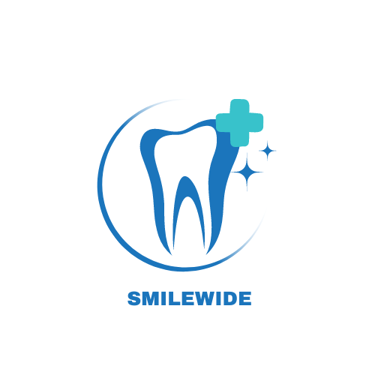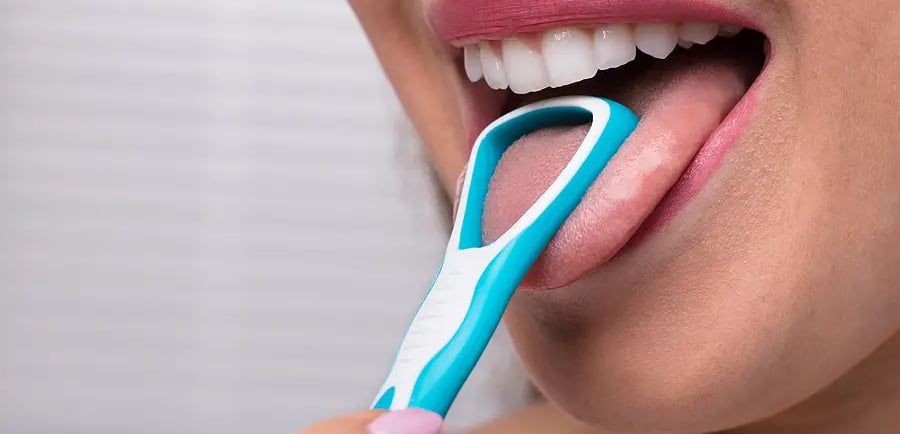SMILE- It costs nothing !!!
Enhance Oral Hygiene with a Tongue Cleaner
Discover the benefits of using a tongue cleaner to enhance your oral hygiene. Effectively remove bacteria and debris for fresher breath and improved overall health. Learn more about maintaining a healthier mouth today!
1/10/20253 min read
The Ultimate Guide to Tongue Cleaners
Maintaining good oral hygiene goes beyond brushing and flossing. A tongue cleaner is an essential tool designed to remove bacteria, food debris, and dead cells from the surface of the tongue.
Incorporating a tongue cleaner into your daily routine can drastically improve your oral health and freshen your breath.
Despite its benefits, many people overlook the importance of cleaning the tongue, making it a critical addition to your oral care regimen.
Why You Should Use a Tongue Cleaner
Eliminates Bad Breath: A tongue cleaner effectively removes the buildup of bacteria responsible for bad breath (halitosis).
The tongue's surface harbors bacteria and food particles that contribute to foul odors. Regular cleaning ensures fresher breath throughout the day.
Enhances Taste Sensation: Cleaning your tongue helps unclog taste buds, allowing you to enjoy flavors more fully.
A clean tongue can improve your eating experience and make food more enjoyable.
Prevents Oral Health Issues: Regular use of a tongue cleaner reduces plaque formation and lowers the risk of cavities and gum diseases.
Bacteria on the tongue can spread to teeth and gums, so removing them is vital for oral health.
Boosts Overall Health: Since oral bacteria can enter the bloodstream, using a tongue cleaner helps minimize health risks.
Improves Oral Aesthetics: A white or coated tongue can look unhealthy. A tongue cleaner helps maintain a clean, pink, and healthy-looking tongue
Related : What your tongue says about your overall health
Types of Tongue Cleaners
Metal Tongue Cleaner: Usually made of stainless steel or copper, this type is durable and effective in scraping off buildup.
Copper tongue cleaners have natural antimicrobial properties, making them a popular choice.
2.Plastic Tongue Cleaner: Lightweight, flexible, and affordable, plastic tongue cleaners are suitable for beginners or people with sensitive tongues.
3.Silicone Tongue Cleaner: Known for its gentle texture, a silicone tongue cleaner is ideal for those who prefer a softer, more comfortable cleaning experience.
4.Dual-Action Tongue Cleaner: This type combines scraping and brushing for a more thorough clean. One side has a scraper, while the other features soft bristles.
How to Use a Tongue Cleaner Correctly
Choose the Right Tongue Cleaner: Pick a tongue cleaner that suits your comfort and needs. Metal options offer durability, while plastic and silicone provide flexibility.
2.Scrape from Back to Front: Stick out your tongue and gently place the tongue cleaner at the back of your tongue. Pull it forward with light pressure to remove the buildup.
3.Rinse and Repeat: Rinse the tool after each scrape to avoid reintroducing debris. Repeat until your tongue feels clean and fresh.
4.Clean Your Tongue Cleaner: Wash your tongue cleaner with warm water and mild soap after each use. Regular cleaning prevents bacteria buildup on the tool itself.
5.Use Consistently: Make tongue cleaning a regular part of your oral hygiene routine, preferably after brushing and flossing.
Related : What is chemotongue
How Often Should You Use a Tongue Cleaner?
For optimal oral hygiene, use a tongue cleaner once or twice daily, preferably after brushing your teeth.
Morning cleaning helps remove bacteria that accumulate overnight, while evening cleaning ensures your mouth is clean before sleep.
Choosing the Best Tongue Cleaner
When selecting a tongue cleaner, consider the material, design, and ease of use:
Material: Metal tongue cleaners are durable and effective, while plastic and silicone options are softer and more flexible.
Design: Look for ergonomic handles and wide scraping surfaces for better control and efficiency.
Ease of Cleaning: Choose a tongue cleaner that's easy to wash and maintain.
Common Mistakes to Avoid When Using a Tongue Cleaner
Applying Too Much Pressure: Excessive force can irritate the tongue. Use gentle pressure for effective cleaning without causing harm.
2.Starting Too Far Back: Placing the tongue cleaner too deep can trigger gagging. Start where you're comfortable and gradually move backward.
3.Infrequent Use: Irregular use reduces the effectiveness of a tongue cleaner. Consistency is key to maintaining oral health.
4.Neglecting to Clean the Tool: Failing to clean the tongue cleaner can lead to bacteria buildup, defeating its purpose.
FAQs About Tongue Cleaners
1. Can I use a toothbrush instead of a tongue cleaner to clean my tongue?
While toothbrushes can clean your tongue, a dedicated tongue cleaner is more effective at removing debris and bacteria from the tongue.
2. Are metal tongue cleaners safe?
Yes, metal tongue cleaners like stainless steel or copper are safe and more durable compared to plastic alternatives.
3. How often should I replace my tongue cleaner?
Replace your tongue cleaner every 3-6 months or sooner if it shows signs of wear, rust (in metal cleaners), or damage.
4. Can a tongue cleaner prevent bad breath permanently?
A tongue cleaner can significantly reduce bad breath but should be used alongside regular brushing, flossing, and dental check-ups for lasting results.
Incorporating a tongue cleaner into your daily oral care routine can significantly improve your oral health, combat bad breath, and enhance taste sensations.
Choose a high-quality tongue cleaner that suits your needs and make it a habit for a fresher, healthier mouth.
Start using a tongue cleaner today and experience the difference!

Contact Smiles
drdeepi15@gmail.com
Dr. Deepika B.D.S
© 2025 SmileWide Dental. All Rights Reserved.
Have doubts ..?


